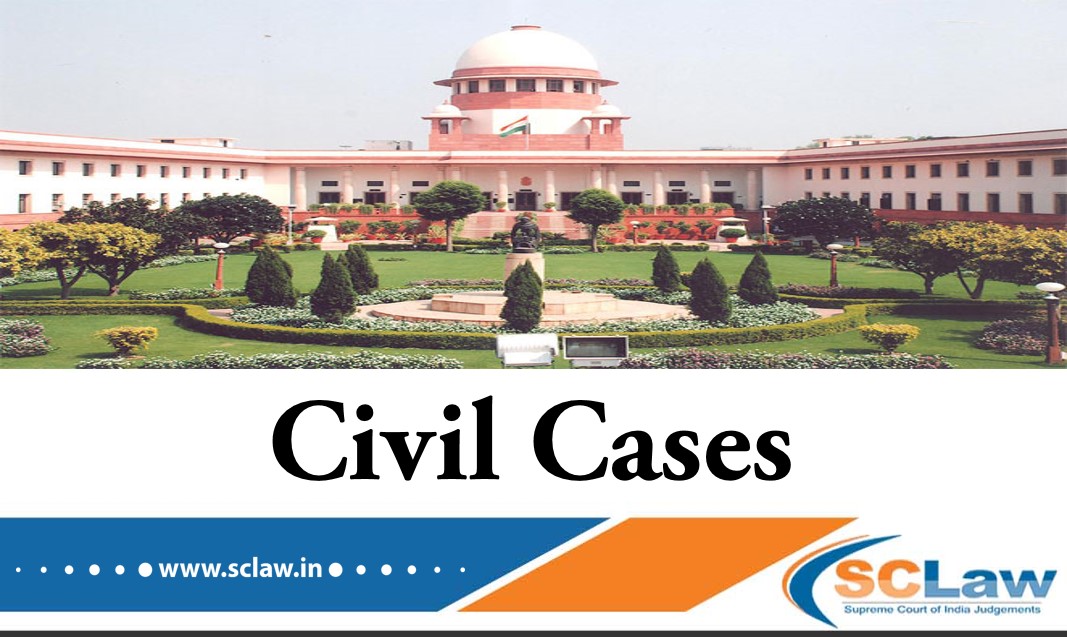Murder—Acquittal—Circumstantial Evidence—Complete chain not established. Last seen together—Accused was present at some distance from deceased—Concept of last seen together cannot be said to established.
2007(4) LAW HERALD (SC) 2731 IN THE SUPREME COURT OF INDIA Before The Hon’ble Mr. Justice Dr. Arijit Pasayat The Hon’ble Mr. Justice P.P. Naolekar Criminal Appeal No.…
Rape—Conviction on sole testimony of prosecutrix—No reason why the prosecutrix, aged about 20 years, should made a false allegation against the appellant of having raped her.
2007(4) LAW HERALD (SC) 2728 IN THE SUPREME COURT OF INDIA Before The Hon’ble Mr. Justice B.P. Singh The Hon’ble Mr. Justice Altamas Kabir Criminal Appeal No. 1493 of 2005…
Equation of posts – Equating higher post of Accounts Officer with lower post of Accountant held to be wholly unjustified.
(1995) 71 FLR 290 : (1996) 1 LLJ 819 : (1995) 3 SCALE 396 SUPREME COURT OF INDIA ISHWAR CHAND — Appellant Vs. STATE OF MADHYA PRADESH AND ANOTHER…
Telecom Regulatory Authority of India Act, 1997 – Section – 11, 36 – Introduction of New Telecommunication Policy – Whether appellant is liable to pay Access Deficit Charges to BSNL for the period commencing from 14.11.2004 to 26.8.2005 in respect of its service provided under its brand name “WALKY”
(2008) 2 CompLJ 405 : (2008) 5 JT 657 : (2008) 6 SCALE 523 : (2008) 10 SCC 556 SUPREME COURT OF INDIA TATA TELESERVICES LTD. — Appellant Vs.…
Money suit – Leave to defend – Conditional leave granted to defendant by High Court on deposit of Rs. 10 lakhs and furnishing security for a similar amount – Condition modified by Supreme Court
AIR 1998 SC 2931 : (1997) 10 JT 164 : (1997) 7 SCALE 582 : (1998) AIRSCW 2350 : (1997) 10 Supreme 405 SUPREME COURT OF INDIA RAJESH AHUJA —…
Witness – Interested witness – Natural presence – Incident of stabbing taking place at night inside the house of deceased in the presence of son and wife whose presence was natural at the scene of occurrence
AIR 1998 SC 1492 : (1998) CriLJ 846 : (1997) 9 JT 405 : (1997) 7 SCALE 309 SUPREME COURT OF INDIA ELKUR JAMEESU — Appellant Vs. STATE OF…
Testimony of Investigating Officer regarding recovery of revolver and its working condition corroborated by recovery witness – Police cannot be said to have planted said revolver – Accused rightly convicted.
AIR 1998 SC 1516 : (1998) CriLJ 1103 : (1998) 1 Crimes 10 : (1997) 9 JT 488 : (1997) 7 SCALE 324 : (2000) 4 SCC 510(1) :…
Interlocutory application–Withdrawal of–Court need not go into the correctness or otherwise of the allegations made by the applicant against the appellants or any other person.
2007(4) LAW HERALD (SC) 2726 IN THE SUPREME COURT OF INDIA Before The Hon’ble Mr. Justice S.B. Sinha The Hon’ble Mr. Justice Harjit Singh Bedi Civil Appeal No. 6327…
Public Auction—Invitation for participation in public auction ensures transparency and it would be free from bias or discrimination and beyond reproach.
2007(4) LAW HERALD (SC) 2719 IN THE SUPREME COURT OF INDIA Before The Hon’ble Mr. Justice Dr. Arijit Pasayat The Hon’ble Mr. Justice S.H. Kapadia Civil Appeal No. 4002 of…
Penal Code, 1860 (IPC) – Section 149 – Unlawful assembly – Acquittal of co accused
AIR 1998 SC 1533 : (1998) CriLJ 1110 : (1998) 1 Crimes 84 : (1997) 10 JT 87 : (1997) 7 SCALE 516 : (1998) AIRSCW 563 : (1997)…












